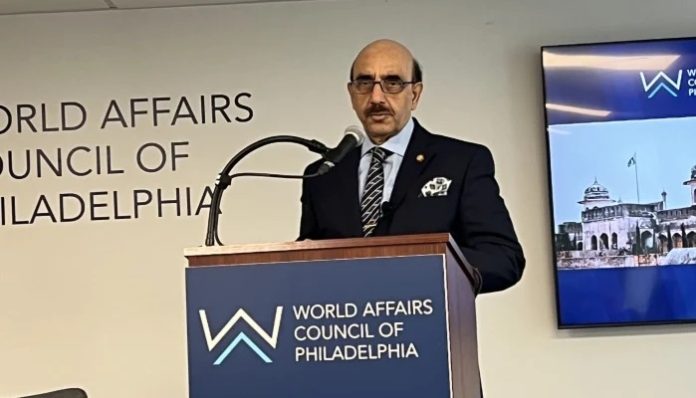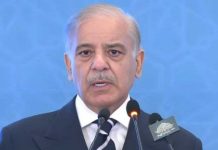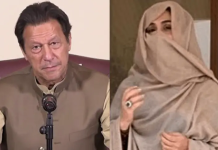DNA
WASHINGTON: Pointing out a strategic imbalance in South Asia and Washington’s tilt towards New Delhi, Pakistan’s Ambassador to the United States Masood Khan urged the Biden administration to follow a balanced approach.
“US heavy tilt towards India is accentuating strategic imbalance which is fraught with serious risks,” he said on Thursday while addressing a gathering of scholars, policy-makers, legislators, and professionals at the World Affairs Council of Philadelphia, Washington.
The ambassador also emphasised on full restoration of Foreign Military Financing (FMF) and Foreign Military Sales (FMS) and assistance to fight continued threats from terrorists in the region.
Khan gave a detailed perspective on Pak-US relations, war on terror, re-calibration of Pak-US relationship post-withdrawal period, Pakistan-India relations and the issues of regional stability.
While highlighting existing investment and trade opportunities, Ambassador Khan offered US companies to manufacture in Pakistan, where they could find 240 million consumers.
“Pakistan is a big market for American manufacturers. If you manufacture state-of-the-art products, you have 240 million consumers in Pakistan,” he said.
Referring to the historic role played by Pakistan in bringing China and the US closer to each other in the early 70s, Khan has said Pakistan was willing to play the role of economic bridge between the two countries in the present age.
The envoy reiterated that Pakistan’s relations with China were not at the expense of its ties with the US.
Adding his perspective to the most recent collaboration of the two countries in the war against terror, Masood Khan said: “Pakistan was blamed at times for the Mission failure. Although, I personally believe that we have accomplished a lot in the war against terrorism. We collaborated and together we broke the backbone of terrorist organisations.”
“al-Qaida is not where it was in 2001-02. There is awareness all around the world about the asymmetric threat of terrorism to international civilisation and how to tackle it,” he said.
He said that in late 2021 and early 2022, the leadership of the two countries decided to recalibrate their relationship.
They decided that “while we will continue our cooperation in counter-terrorism, promote regional stability, maintain a dialogue, we would like to secure the region from any nuclear instability and so on.”
He also said the number of Pakistani students in the US had significantly risen.
“When I came here in 2022, the number of Pak students in American universities was 7,000. Now it is more than 10,000,” he said.

















